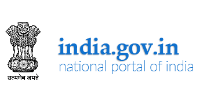Menu
- Home
- About Us
-
India - Mauritius
- India Mauritius Bilateral
- Economic and Commercial
-
Education and Language
- India-Mauritius Co-operation in the Field of Education
- FAQs on undergraduate Medical Education in Mauritius
- Scholarships to Mauritian Students
- Government of India's Self-financing Slots
- Other admissions on Self-financing Basis
- Research Visa
-
ITEC

- Mauritian Citizens Educated in India
-
List Accredited Private Tertiary Institution in Mauritius

-
Consular Services
- Consular Working Hours
- Visa
- Passport & related services/ Renunciation of Indian Citizenship
- Other Services
- Overseas Citizen of India (OCI) Card
- Important Advisories
- General Information
- Registration of Indians in Mauritius
-
Consular Services Management
System: MADAD Portal

- FAQs-Assistance for Married Indian Women in Distress
- Marriage Registration
- Media Center
- Amrit Mahotsav
- IGCIC
- Announcements
- Useful Links
- Tenders





